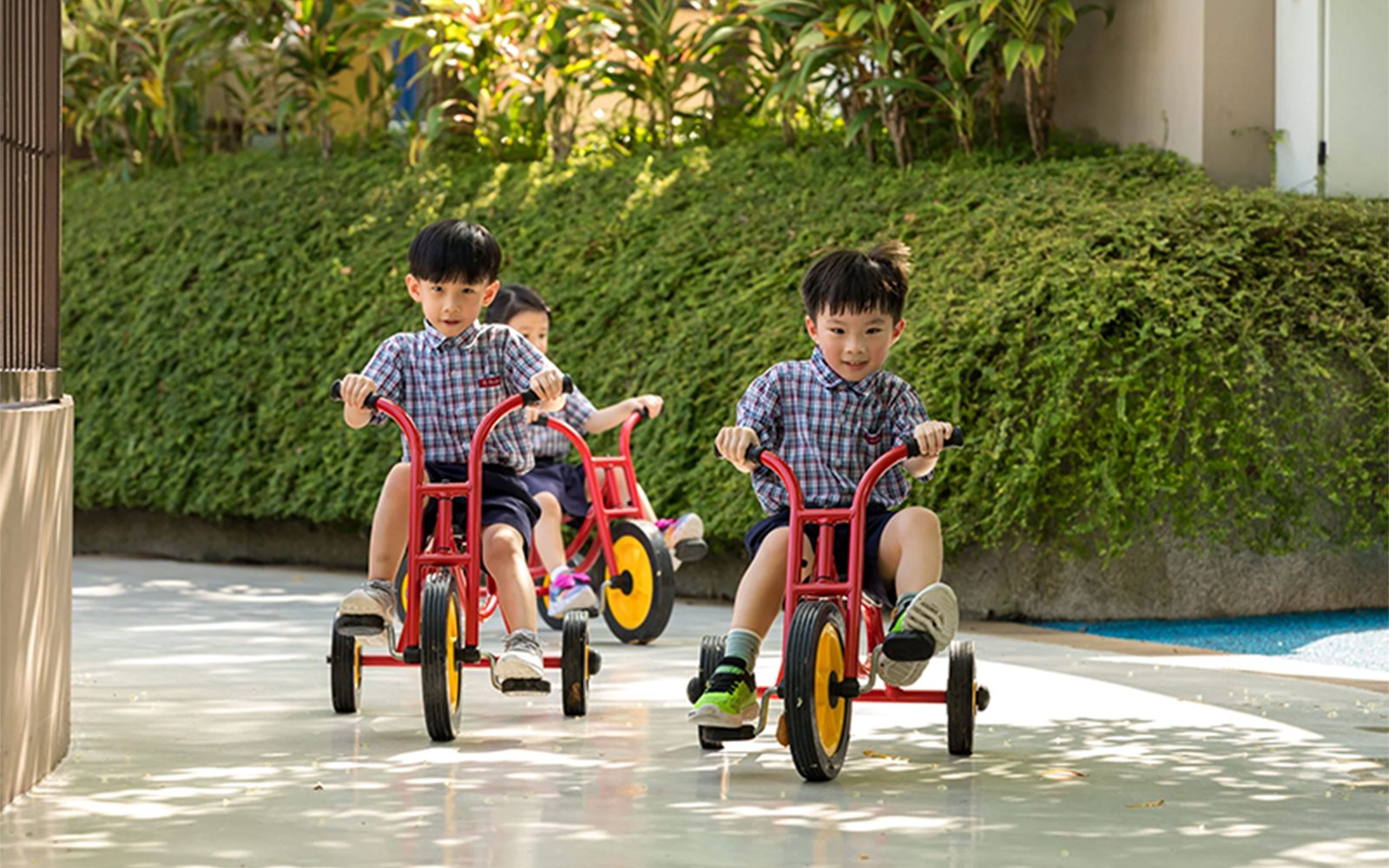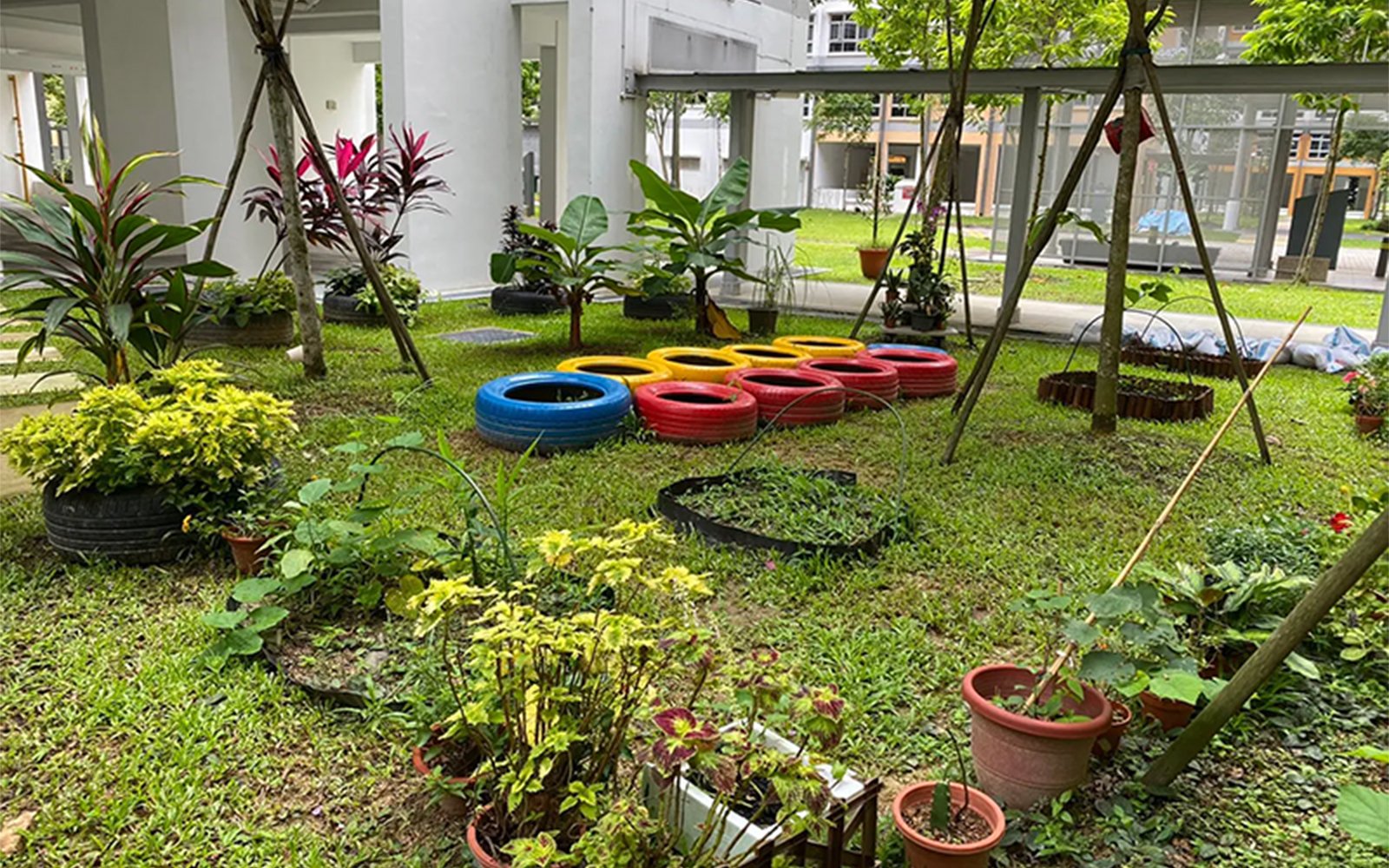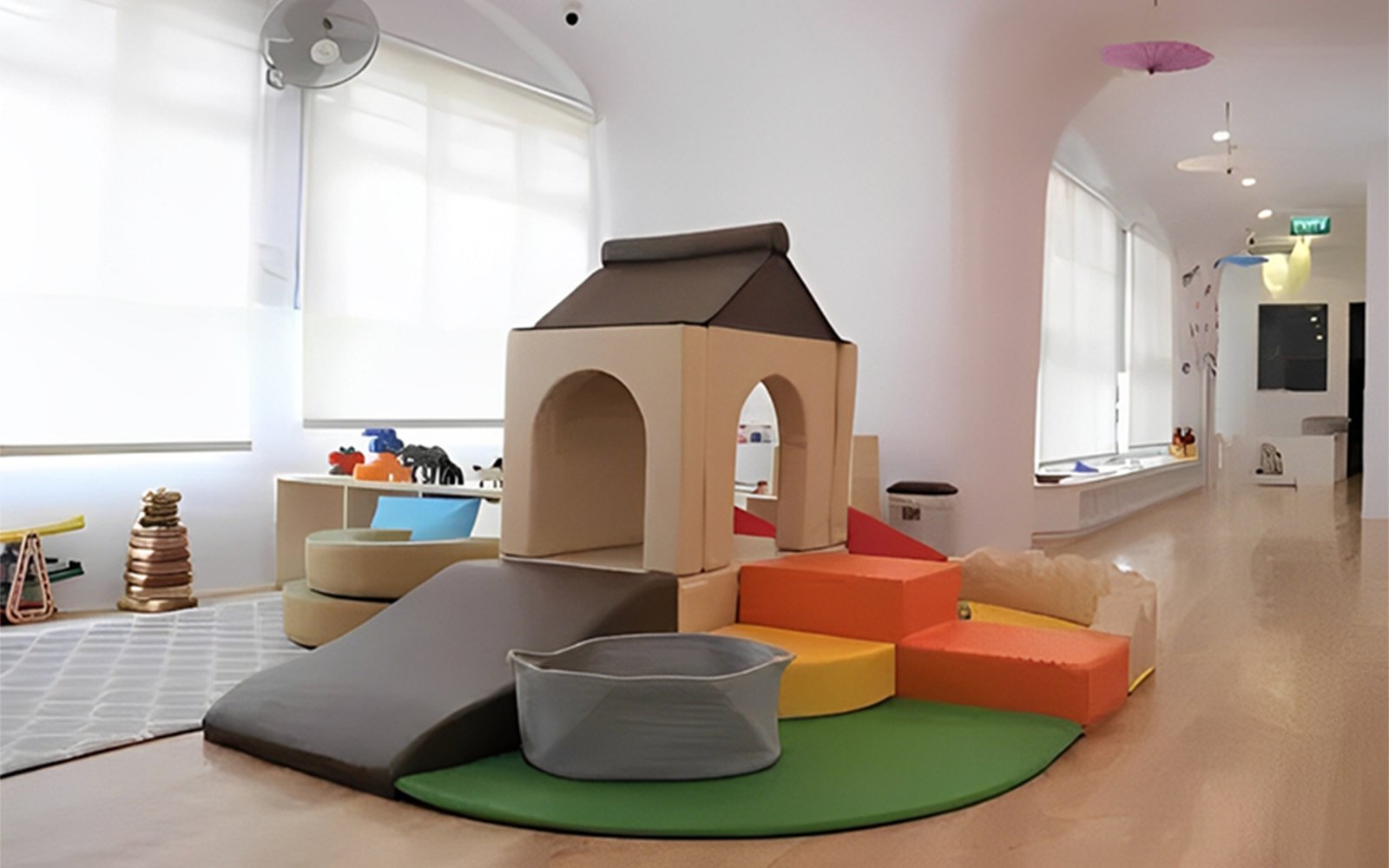Key Takeaways
- Gross motor skills for preschoolers are developed through everyday movement that builds strength, coordination, and confidence.
- Purposeful indoor and outdoor environments create opportunities for children to explore how their bodies move and grow.
- Activities such as obstacle courses, movement games, yoga-inspired stretches, and unstructured play all support physical development in early childhood.
- If you’re looking for a preschool near you that values movement-rich learning and holistic child development, E-Bridge Pre-School provides a child-led, nurturing space where children can grow and thrive.
How Preschools Help Build Gross Motor Skills in Children

When your child races across the playground, climbs a jungle gym, or plays a game of hopscotch, they aren’t just burning energy—they’re building crucial gross motor skills. These big, coordinated movements strengthen muscles, sharpen coordination, and support healthy development from head to toe.
Let’s explore how everyday play shapes gross motor skills for preschoolers—and how E-Bridge Pre-School thoughtfully nurtures this growth with intention and care.
1. Open Spaces That Encourage Learning Through Movement

Open spaces naturally invite children to move freely, test their limits, and build physical confidence. Outdoors, they run, climb, balance, and jump—developing essential gross motor skills while learning to navigate space and collaborate with their peers.
That’s why high-quality childcare centres in Singapore, like E-Bridge Pre-School, thoughtfully incorporate outdoor learning experiences into the day. At E-bridge Pre-School Bukit Batok West, for example, children enjoy an outdoor play area complete with a mini obstacle course and garden. These spaces encourage purposeful, playful movement that enhances gross motor development.
2. Movement Games and Music
Dance, rhythm, and repetition are excellent tools that help children develop coordination, spatial awareness, and the ability to follow multi-step directions in a playful, engaging way. Think classic action songs like “Head, Shoulders, Knees, and Toes”, where movement and music come together seamlessly.
This form of movement-based learning also supports social development. Children laugh, move together, and learn to take turns—all while developing their physical abilities. Whether it’s freeze dance, scarf play, or a group action song, these moments make learning fun and engaging.
3. Structured Indoor Movement

Movement isn’t limited to outdoor spaces. At E-Bridge Pre-School, we view the environment as the third teacher, and our indoor spaces are thoughtfully designed to reflect this belief.
Children can crawl through fabric tunnels, step across balance beams, or climb soft blocks in a mini indoor obstacle course. These guided learning experiences promote posture, coordination, and core strength. Each setup encourages purposeful movement, helping children develop physical control and body awareness in a safe, nurturing environment.
4. Free Play Opportunities
Unstructured time may seem simple, but it’s often where some of the most meaningful learning takes place. When children move freely, they explore how their bodies work and learn to direct movement with intention.
Free play encourages experimentation, risk-taking, and creativity—all while supporting the development of gross motor skills for preschoolers. At E-Bridge Pre-School, our environments provide flexible spaces that invite spontaneous exploration. Educators observe closely, offering guidance when needed, while allowing children the freedom to try, stumble, and try again—building confidence, resilience, and physical competence.
Conclusion: Movement Is Learning
Gross motor skills for preschoolers aren’t developed in isolation—they grow through playful, active, everyday learning experiences, intentionally supported by caring educators. At E-Bridge Pre-School, active learning is a priority, not an afterthought. Through thoughtfully designed routines and engaging environments, children gain confidence in their bodies, develop physical awareness, and grow into capable learners ready for the next stage of life.
For parents looking for a preschool that values holistic development, movement-rich learning experiences, and child-led exploration, E-Bridge Pre-School offers a nurturing start. As an ECDA Anchor Operator, our centres provide high-quality early childhood education with accessible preschool fees in Singapore. Inspired by the Reggio Emilia approach, our curriculum encourages curiosity, creativity, and confident self-expression.
Discover a centre near you and explore how E-Bridge can support your child’s learning journey.
